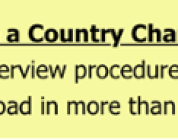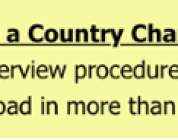Home to some of the immense oil wealth, major ports, and a booming tourism sector, the United Arab Emirates (UAE) has become a global center of trade, finance, and travel. With cities like Dubai and Abu Dhabi offering opulent shopping, world-class dining, and some of the world’s most stunning architecture, the Emirates has become a major destination for tourists and investors alike. These attractions, along with some of the world’s most lucrative salaries and benefits also make the United Arab Emirates one of the most competitive job markets in the world for teaching English abroad.
Enticing, right? But how much money can you make teaching English in the UAE? Let’s find out!
English Teacher Salary in the UAE
How Much Does an English Teacher Earn in the UAE?
On average, English teachers in the UAE (including Dubai and Abu Dhabi) can expect to make anywhere between $1,800 – $5,000 USD (approx. 6,600 – 18.360 AED*) per month. It is common for employers to pay for teacher’s housing and sometimes even provide a reimbursement for flight costs.
Your salary will fluctuate depending on which teaching position you choose to pursue, which city you teach in, and how many hours you teach per week. Any previous teaching experience can possibly translate into higher starting pay rates and as you gain experience, you will likely see your salary rise accordingly.
* The abbreviation for the United Arab Emirates Dirham is AED.
Read more: How Much Can I Make Teaching English Abroad?
UAE Teaching Salary: The Details
TEFL-certified teachers have a multitude of teaching opportunities awaiting them in the UAE. For those who choose to teach English in this vibrant country, there are various avenues to explore:
- Teaching adults, business professionals, or children in private language schools and occasionally in vocational colleges;
- Teaching children and teenagers in International schools;
- Private tutoring both children and adults;
- Teaching English online;
- A combination of the above.
NOTE: If you have advanced teaching credentials, you may have the opportunity to secure a teaching position in an international school, a private bilingual grade school, or a high school. These positions often come with higher salaries and additional benefits compared to those available to first-time teachers.
| Salary & Expenses | English Teacher Salary in the UAE Details |
|---|---|
| Language School / International School Salary | Between $1,800 and $5,000 USD per month |
| Private Tutoring Salary | $20-$50+ USD per hour |
| Teach English Online Salary | $5-$20 USD per hour |
| Average Cost of Living | $1,000-$1,500 USD per month |
| Start-up Costs | Between $1,500 and $2,500 USD |
Let’s explore each option and what you can expect to earn from them:
1. UAE Private Language & International School Salaries
Although the UAE is a small country, there is still a great demand for English teachers in and around major cities like Dubai and the capital, Abu Dhabi. Despite this great demand though, to gain employment in the UAE, teachers are typically required to hold a Master’s Degree (in any field), or a degree specifically in education, with a strong preference for those who have previous teaching experience. This often makes the UAE a harder market for TEFL-certified teachers to gain employment, especially beginner TEFL teachers with little to no teaching experience.
The school year in the UAE starts during the last week of August and ends in June. However, private language institutes that cater primarily to adults in the business community do not necessarily operate according to the academic calendar used by grade schools and universities.
ESL teachers in the UAE can expect to find jobs available year-round with interviews being conducted in advance via video call while still in your home country.
Pay will fluctuate depending on where you are located, with teachers in larger cities like Dubai and Abu Dhabi earning more than those teaching in smaller cities and towns. English teachers working at private language and International schools in the UAE can expect to make anywhere between $1,800 – $5,000 USD per month.
Visa Options for Teaching English in the UAE
Work Visa for Teaching English in the UAE
It is standard practice for English teachers in the UAE to receive a sponsored work visa which will be processed in their home country before departure.
Dubai Digital Nomad Visa for Online ESL Teachers
The city of Dubai recently introduced a virtual working programme that allows residents from outside the UAE to work remotely from Dubai for 12 months. This may be a great option for those who solely teach English online. To participate in this program, you must satisfy several requirements, with the main one being able to show proof of employment from your current employer with a one-year contract validity, a minimum of $3,500 USD per month salary, last month’s payslip, and three preceding months’ bank statements.
2. UAE Private English Tutoring Salaries
Private tutoring ESL students (especially adults) is extremely common among English teachers in the UAE. Teachers who choose this route are often:
- Teaching English in the UAE at a private language or International school and taking on some private tutoring students to help supplement their income;
- Teaching English online and seeking supplemental income by privately tutoring students in addition to their online teaching job;
Getting clients for private lessons is a marketing exercise, and all the avenues that seem appropriate to your circumstances have to be explored. Here are some ways you can market yourself:
- Post notices in schools and universities, coffee shops, supermarkets, embassies, or corner shops;
- Run an advertisement in local periodicals, especially those that cater to university students, professionals and ex-pats;
- Send notices to local public schools announcing your willingness to work with local students on their English.
- Compile a list of addresses of professionals (lawyers, architects, etc.), and professional associations who may need English for their work and have the resources to pay for it and then contact them.
- Call on export businesses, distribution companies, and even travel agencies and tourism companies.
- Get ESL business cards made with Arabic on one side and English on the other.
- Enroll in ITA’s English Tutoring Specialty Course. This course will not only provide you with enhanced teaching skills in a private tutoring setting, but also incorporates practical guidelines for how to set up your own tutoring business.
How much money can I make from private tutoring ESL students in the UAE?
As a first-time private ESL tutor in the UAE, you should expect to charge and make around $20-$50 USD per hour for one-on-one lessons (depending on where in the UAE you are based). If you are providing private tutoring lessons for small groups (2-3 students at a time), it’s possible to increase your rates as your small group of students will be splitting the hourly cost amongst themselves. Also, if you are able to market yourself to economic elites and ex-pats – especially those who work at embassies or multinational corporations, you can very likely charge higher rates and make the equivalent of $60-$80+ an hour. These types of clients are typically easier to cultivate once you have a little experience under your belt and some reviews as well.
Something to keep in mind – a student may only be after a single private tutoring lesson, or a handful, and can withdraw from their lessons with you at any time. As a result, you should be cautious when trying to budget your private tutoring income too far into the future.
3. UAE Teaching English Online Salaries
Like private ESL tutoring, teaching English online is an extremely popular way for teachers to make money. Some digital-nomad-style English teachers in the UAE teach online as their sole job and income, while others do it to supplement the income they earn from teaching at a private language/ International school or from private tutoring.
Teaching English online provides TEFL-certified teachers with the opportunity to make money from the comfort of their own homes, with most teachers being able to make anywhere from $5-$20 USD per hour. Hours are flexible, and it is up to you how much or how little you teach – you are in total control of your schedule.
A key advantage of teaching online is that you can begin teaching and making money before you move to the UAE. This is a great way to help cover the start-up costs of your move and will ensure that you have an income immediately upon your arrival in the UAE.
Additional Reading: To learn more about how much you can earn from online ESL teaching, please read How Much Money Can I Make Teaching English Online? Need help to find an online teaching platform? Check out Non-Chinese ESL Companies to Teach English Online With.

Expenses for Teaching English in the UAE
There are two categories of expenses that need to be taken into consideration for those looking to teach English in the UAE:
- Start-up costs
- Cost of living
Let’s explore each of the two in more detail.
1. Start-Up Costs for Teaching English in the UAE
Start-up costs are expenses you will incur from your arrival in the UAE until you receive your first paycheck and may include things like a security deposit and first month’s rent, apartment supplies, transport, groceries, getting your new local cell phone number set up, etc.
Start-up costs to cover your first month of living in the UAE will usually range somewhere between $1,500 and $2,000 USD, but having access to $2000 – $3000 would be ideal. This is the minimum amount of savings you should have on hand before leaving home and arriving in the UAE. If you have more, great, but if you have less, you may be setting yourself up for failure from the get-go which can cause unnecessary added stress during an already stressful period of adaption and change.
When planning ahead, it’s important to remember that there are other start-up costs to consider before embarking on your teaching adventure in the UAE. These will include the cost of your TEFL certification, airfare to the UAE (although sometimes this may be covered by your employer), and any costs associated with obtaining necessary documents like your passport, visa, etc.
2. Cost of Living for Teaching English in the UAE
Cost of living refers to everyday monthly expenses you will incur during your time in the UAE. The cost of living in the UAE is somewhat modest ($1,000 – $1500 a month) and salaries ($1,800 – $5,000 a month) for first-time ESL teachers are generous. English teachers typically live comfortably on what they earn, but financial planning is still imperative to prepare you for success. The most popular expenses that fall under this category include:
- Monthly rent expenses (although it is common that your employer will provide you with housing and cover your rent)
- Utilities (electricity, gas, water bills, etc)
- Food and grocery expenses
- Health insurance
- Internet bill
- Cell phone bill
- Transportation (transit card, ride-sharing services, etc)
- Travel/entertainment expenses
Your cost of living expenses can vary drastically based on where in the UAE you are based. For example, those living in larger cities like Dubai and Abu Dhabi can expect to have a higher cost of living compared to those located in smaller cities or towns. As a general rule of thumb, you should budget $1,000 – $1,500 USD per month to cover your cost of living.
On average, English teachers in the UAE save up to $800+ USD per month after expenses.
Go further: What are the Requirements for teaching English in the UAE [including Dubai & Abu Dhabi]
![]()





